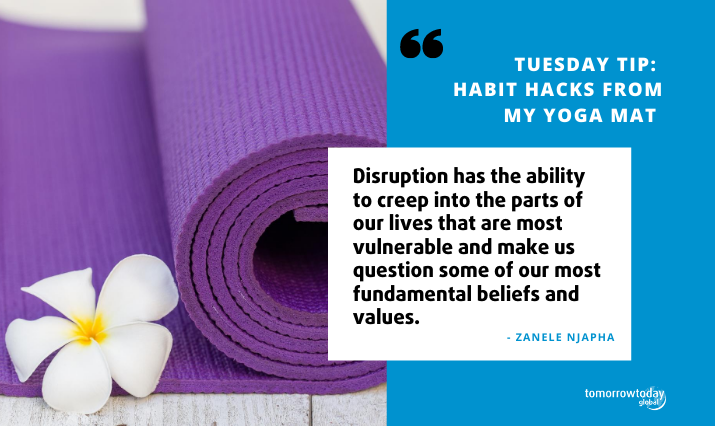At the beginning of August, I launched a poll on LinkedIn to find out which personal life transitions a few of my connections were undergoing at this challenging time (see poll here)
I did this because as much as we are aware that organisations are transitioning (mergers, rebranding, supply chain remodelling etc.) and that we are transitioning professionally (change of roles, redundancy, promotion etc.), very few of us realise that we are currently undergoing personal transitions simultaneously.
The results of the poll were quite interesting. 83% of the participants indicated that of all the life transitions listed in the poll, the one they were experiencing was questioning the purpose/meaning of their lives.
This result shouldn’t come as a surprise to us, because disruption has the ability to creep into the parts of our lives that are most vulnerable and make us question some of our most fundamental beliefs and values.
This ‘questioning’ often results in us taking a deeper look into our learnt behaviours or habits. These can be anything from our spending habits, our approach towards others, our work or even issues related to our diet. We begin thinking about how we can unlearn these to better suit a new version of ourselves that will hopefully respond better in times of crisis and disruption.
If you’re currently on this journey, know that you’re not alone – I’m on it with you.
During three mornings of my work week, I start my day with my yoga practice as a way of ensuring I optimise my productivity during the day. As I’ve practiced yoga and helped individuals and teams break out of identities they no longer wish to associate with, I’ve made a few connections between the two that I’d like to share with you.
Here are three things that practicing yoga has taught me about unlearning habits or outdated identities and creating new ones:
- Clarity – Through simplicity, yoga helps the yogi achieve clarity. Our brains are designed to protect us and save us energy, so the brain will support and fuel clarity and a well-defined idea. As we begin to dismantle a particular identity, we ought to ensure that the new or desired identity is clearly defined with as much detail as is possible.
- Exhale to Inhale – Breathing is a critical part of yoga and assists the yogi to hold, move in and out of the poses fluidly and gracefully. Once you master your breathing, you can almost consider a good chunk of your work done. What I recently discovered after attempting to inhale as deeply as I could was that the best way to get a great big gulp of air into your lungs is to ensure that your last exhale was fairly deep. When we exhale deeply, letting as much air out of our lungs as we can, we set ourselves up for a deep intake of fresh air. In the same vein, if we are to learn and create from a different vantage point, it requires us to disengage from what we once believed to be true.
- Little Wins – I have recently begun extending myself by exploring a few more advanced poses. As I continue with this, I can hear my body protest and beg to return to the familiar. I have to consistently remind myself that those ‘familiar poses’ have become familiar after they were once ‘foreign and unfamiliar’. It was through extending my preconceived limits that I was able to reach a level of automaticity. So every time we sit to ‘practice’, we push a little further and extend just a little more. We remain patient with ourselves, because consistent wins along the way, make a difference over time.
The process of unlearning any behaviours needs us to intentionally apply ourselves in ways that resonate with us as individuals.
My yogi used to say “listen to your body”, meaning ‘do it your way’ and make the practice work for you. This is especially true for habit creation, because it begins with dis-associating from a behaviour to associate with another.
The good and bad news (yes, it’s both) is that transitioning is always occurring and you and I will always be in transition, at work and in our personal lives. With that being the case, shouldn’t we embrace the process and source ways to help us better prepare and navigate through them?
I think so.
For further help with leading yourself and your team through the process, join me for the UnLearning Virtual Workshop where I’ll teach you more tips and tricks to navigate transitions. Register here: https://qkt.io/unlearningworkshop
______________________
About the author of today’s Tuesday Tip – Zanele Njapha
In the face of disruptive change, Zanele assists organisations to navigate various transitions and become future-fit by cracking the unlearning code.
She does this by facilitating the understanding that learning, unlearning and relearning must be the crux and heart of an organisation’s DNA if they are serious about sustained relevance in a shifting climate.
Email [email protected] for more information or to contact Zanele.


